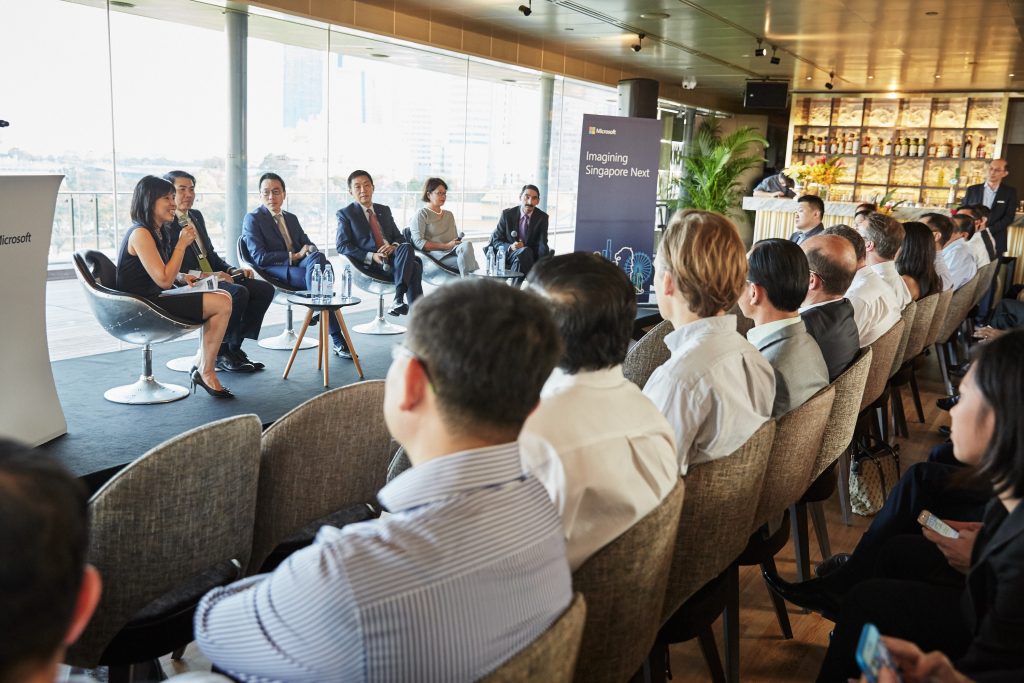
SINGAPORE – Microsoft recently gathered over 60 senior business leaders at the Imagining Singapore Next event on 7 January 2016. Following the celebration of the city state’s amazing transformation during Singapore’s Golden Jubilee, the nation embarks on the next chapter of its journey during a time of increasing global challenges. At the event, Jessica Tan, Managing Director of Microsoft Singapore, invited the attendees to paint their own picture of a better Singapore, and urged them to forge strategic collaborations to build a better, smarter and more inclusive Singapore for the coming years.
The keynote speaker at the event, Dr Beh Swan Gin, Chairman of the Economic Development Board of Singapore (EDB), highlighted that the story of Singapore Next will largely depend on how the country views and defines its role in Asia and more specifically, Southeast Asia. He added that Singapore needs to think about re-orientating its economy in line with four key trends that can power the nation’s growth. These include urbanisation in Asia, rising middle class consumption, the evolution of Singapore as a hub for services, and the movement of goods and people.
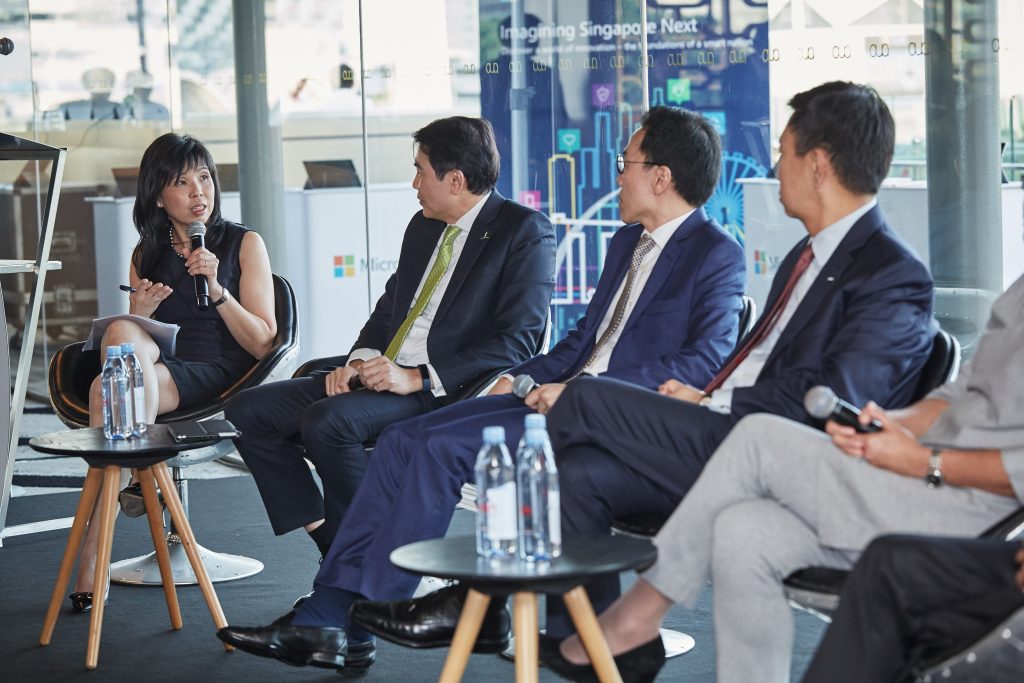
These trends also set the stage for the Imagining Singapore Next panel discussion, which engaged attendees in a lively dialogue on the opportunities, challenges and solutions for building Singapore Next. Moderated by Jessica Tan, participating panellists include:
- Dr Beh Swan Gin, Chairman, Economic Development Board of Singapore (EDB)
- Professor Raj Thampuran, Managing Director, A*STAR
- Goh Swee Chen, Chairperson, Shell Group of Companies in Singapore
- Loh Chin Hua, Executive Director and Chief Executive Officer, Keppel Corporation
- Lim Ming Yan, Group Chief Executive Officer, CapitaLand Limited
Here are the panel’s views on four key areas that businesses should think about in anticipation of the next chapter of the Singapore story:
Reimagine the workforce
With technology as the key engine driving increased productivity and the transformation of business processes, organisations will need to re-tool and scale their workforce accordingly to respond to the changing needs and interests of the customers in the region. More importantly, there is an increasing need for companies to rethink the way they operate in the face of a changing global landscape.
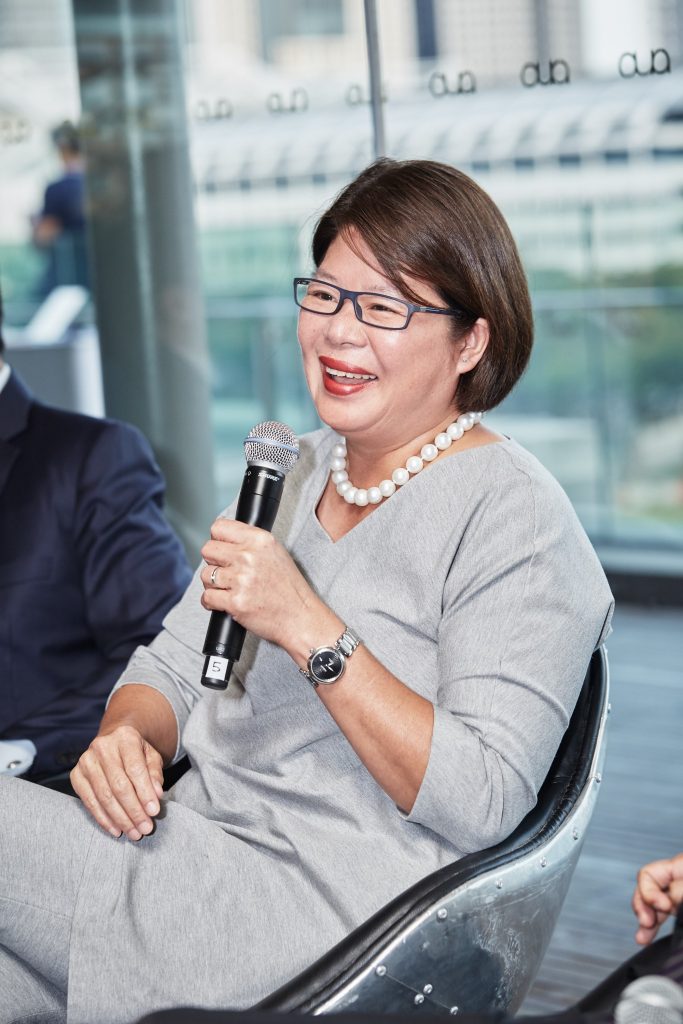
Goh Swee Chen, Chairperson of Shell Group of Companies in Singapore, acknowledged that the company can no longer see itself as provider of commodity, but instead, as an integrator of solutions for the road ahead. “As the population becomes more and more well-informed and increasingly opt for cleaner energy sources, companies like Shell who is in the business of providing traditional energy solutions will face the challenge of having to look for new opportunities. One of the issues with renewable energy sources such as solar energy, is intermittency. However, if a company like Shell can marry traditionally-sourced energy with renewable energy, we can come up with a solution that would work. One of the skillsets that companies like us need, is the ability to innovate and transit to become an integrator of solutions instead of resting on our laurels as a traditional energy provider. And this, requires a shift in mindset,” added Goh.
Shift mindsets
Against the backdrop of rapid urbanisation and rising middle class consumption across Southeast Asia, the continued growth of our economy will hinge on the ability of local businesses to meet the needs of customers in this region. According to Dr Beh, while Southeast Asia’s middle class might not be high income earners compared to the developed markets that Singapore traditionally served, they possess high consumption power and have unique needs that can be met by our businesses here.
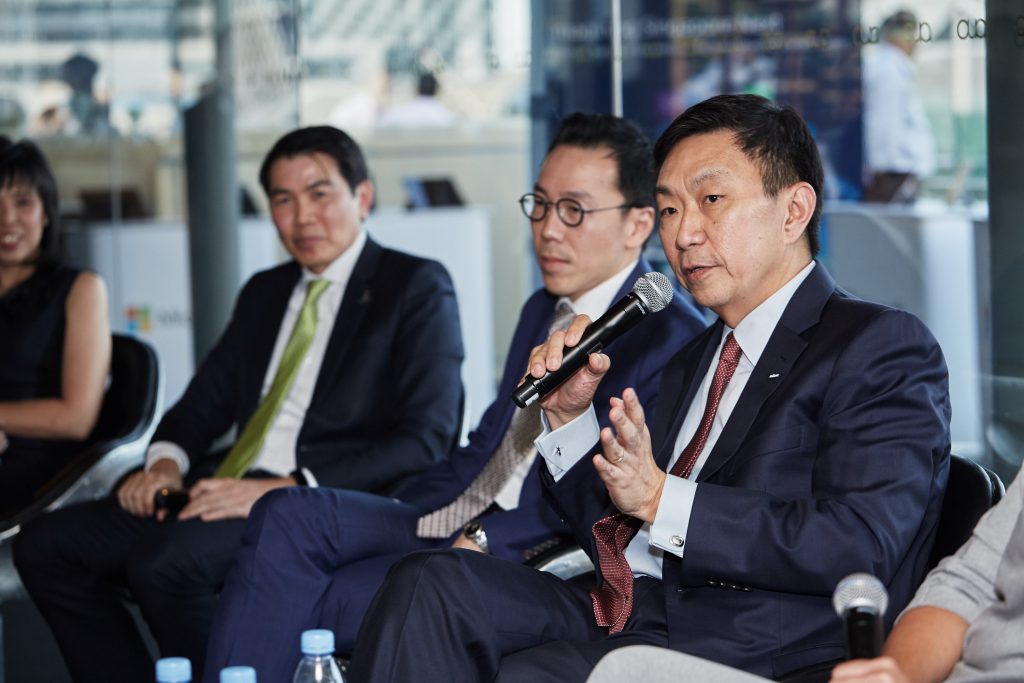
Additionally, as Singapore companies seek to expand their businesses in Southeast Asia, the key to success will lie in their ability to navigate across 10 nations where each country is notably different. Loh Chin Hua, Executive Director and Chief Executive Officer of Keppel Corporation highlighted that the real challenge for Singapore businesses is to convince their employees who are used to a comfortable lifestyle to take on more challenging leadership roles and be successful in these emerging economies. “We need our young talents to realise that the future is out there, and we need to instill a sense of adventure in them to go out to challenging places in the region, to work, live and build businesses there,” Loh added.
As such, mindsets need to change. Singapore businesses that are used to conservative business models will need to reimagine what the future might be would look like for them as they ride on the waves of change in the next chapter of Singapore’s journey.
Redefine Singapore as a hub
In the last 50 years, Singapore has served well as the regional hub for industries. While this has worked, there is a need to rethink the hub concept to keep the nation thriving for Singapore Next.
In the past, developing integrated spaces for work-live-work-play was near impossible. But with the prevalence of the Internet of Things (IoT), Lim Ming Yan, Group Chief Executive Officer of CapitaLand pointed out that this has provided companies like his with the opportunity to embark on pilot projects that can turn the vision of smart buildings into reality.
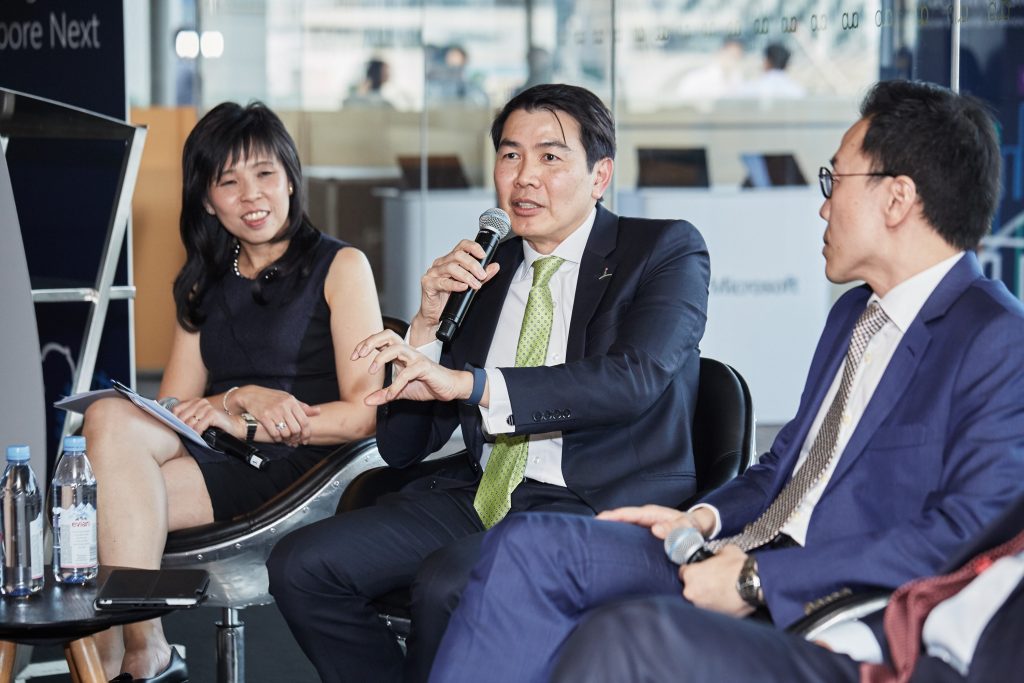
“Just last year, we started a pilot and pulled in various companies that deal with different aspects of smart buildings. We found that while many companies have the same idea of pulling in their solutions to create smart buildings, no one has actually done that. This inspired us to create a living lab with our partners, to enable companies here to put their vision into practice. With an efficient government, Singapore has the ability to pilot new ideas quickly, develop and pass regulations in response to the latest technological developments, and serve as the model for other countries in the region to emulate,” added Lim.
As companies continue to think about the changing role of Singapore as a hub, Loh noted that Singapore companies should also aspire to be game-changing global companies. “At Keppel, we have a vision to be a global company, and be at the forefront of our industry. While we are already operating in 30 countries, we are still some distance away from being a truly global company. If you look at a small city like Seattle, it has produced global champions such as Microsoft and Starbucks. Singapore can also aspire to be there, and develop local champions that can become truly global companies – that would be an amazing feat. And if we can also provide good careers, we will be able to attract the best talents to grow our local companies, and offer them growth opportunities abroad,” added Loh.
Rethink education
While the possibilities brought about by the region’s growth and technology are limitless, ultimately the ability for Singapore to write its next chapter is dependent on its people.

While Singapore’s education system has always been linked to the nation’s workforce planning to ensure a healthy employment rate, Professor Raj Thampuran, Managing Director of A*STAR, noted that there is a need to rethink the education system that is currently largely based on a single discipline. Instead, an interdisciplinary approach will better meet the needs of the world we live in and operate in today. “Increasingly, businesses are expected to provide solutions based on the understanding of systems, and a more holistic approach to education is required,” Professor Thampuran said.
“Education institutions also need to make the shift towards just-in-time training. As the pace of change quickens, our institutions will need to evolve the way we train our young, in order for their skills to be relevant to the workforce by the time they graduate,” added Dr Beh.
